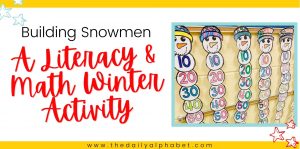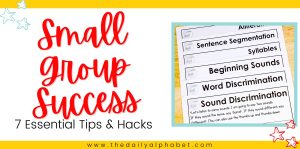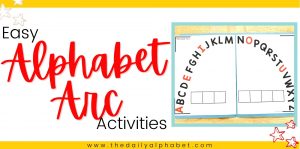
Free Concepts of Print Lessons
Learn how to create positive literacy experiences right from the start!
Latest from the Blog


Building Snowmen: A Literacy & Math Winter Activity
As we say goodbye to the holiday season, I’m thrilled about the winter-themed activities ahead. One enduring favorite in my classroom is exploring snow and crafting snowmen. Over the years, I’ve shared glimpses of these experiences on Instagram, observing firsthand the joy they bring. From counting adventures to personalized creations,


What the Science of Reading Tells Us About Sight Words
Our thoughts about teaching sight words have shifted from how things used to be. The infamous word walls are out, and the Science of Reading and its role in understanding sight words are in. In teaching young minds to read and write, understanding the science behind it is paramount. We’ll


Bring the Science of Reading to Your Classroom
“The Science of Reading” isn’t just a trendy phrase in education; it’s the key to unlocking the doors to proficient reading. It’s not a curriculum or just an educational philosophy but a collection of meticulously researched insights into how reading works. In a world where reading skills are critical, understanding


3 Ways to Keep Students Engaged in Centers
Uncover the keys to engaging learning centers! Transform your classroom with variety, choices, and clarity. Enhance student engagement today!


Small Group Success: 7 Essential Tips and Hacks
Small group is where the magic happens! There are so many moving pieces that getting started doesn’t always seem magical. With valuable tips and an in-depth look at smart small group techniques, we can provide our students with effective personalized instruction. Read on to learn how veteran educators create an


What are Phonemes and Graphemes?
If you’ve ever felt a bit overwhelmed by all the different terms and ideas related to teaching reading, you’re definitely not alone. Today, we will explore two important terms: phonemes and graphemes. Reading can sometimes be tricky, and words like “phoneme” and “grapheme” might seem similar at first, but they









